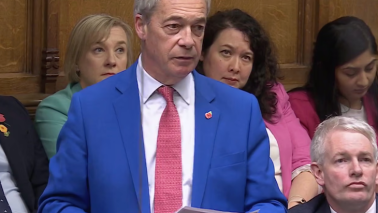This week marked seven years since I agreed to quit my civil service career to become a political adviser to Gordon Brown, and three years since I was forced to quit that new role in shame. Following my resignation, I put my last vestige of professional pride into denying the chasing media pack the chance to put a camera in my face. My home was surrounded, so I spent seven nights staying with different friends in London, on occasion having to escape over fences or inside car boots when the pack found me. I learned two main lessons from this experience, besides not sending scandalous emails: first, switch your mobile phone off when not on the move — I was tracked down whenever I didn’t — and second, introduce yourself to any neighbours even if only staying one night. The first time you meet shouldn’t be when asking to crawl out of their window.
•••
I will always recall an article from that week describing me as the most unemployable man in Britain. I was certainly at a low point then, and very lucky that my old teachers at Finchley Catholic High School, and later Cafod, were willing to give me a second chance. Both told me that, when they received my applications, deciding whether to consider me became as much a test of their own morals as it was a judgment on mine. I’ve seen those same morals in action every day at Cafod this week, not least in the sacrifices people have willingly made during Lent to help others, and it is a truly uplifting experience. Someone asked me at the weekend what I’d say if someone offered me my old job back. I used to joke: ‘Why on earth would they?’ This time I said: ‘Why on earth would I?’
•••
That said, my years in the Treasury have left me a Budget addict. And looking at the ongoing coverage, weeks after the statement, reminds me of the pitfalls of the process. In the run-up to a Budget, all manner of ideas are submitted. Each viable idea is called a ‘starter’ — and no ‘starter’ ever disappears from the record. Even if it is firmly rejected early in the process, it still lurks waiting to be recalled in case of an emergency. I read George Osborne’s first two Budgets thoroughly, eager to see what fast ones my old civil service friends had managed to pull on the new Chancellor. I was gravely disappointed. These were highly disciplined Budgets — all but the most carefully considered starters seemed to have been stripped out. I’m not sure what happened in March’s Budget, but many old ideas that we were rejecting eight years ago — like taxing alterations to listed buildings, and the now-infamous pasty tax — had sneaked through. In Whitehall, the less control is exerted by ministers, the more the government machine gets up to.
•••
What was entirely new to me was the proposed cap on tax relief for philanthropists. The crackdown is all the more surprising given what the coalition has done to encourage charitable giving. Cafod is on course for a record Lent fundraising appeal, for example, as our supporters were clearly inspired by the government’s decision to match our final total. I did my part by giving up alcohol for Lent and donating the alarmingly large savings.
•••
Thankfully, my abstinence was long forgotten by Saturday for the 14th annual gathering of a diverse group of friends to watch the Grand National, hosted this year by an old Treasury colleague, Robbie Browse. He is a connoisseur of wine and horses, and played a vital role for Gordon Brown: briefing him on the latest racing industry news ahead of his many pre-Budget audiences with the Queen. Robbie informed us that George Osborne does not require this service — the Chancellor has a passion for the turf. Several other Treasury officials were present, although none with responsibility for taxes, which may have accounted for their good spirits. Not to mention their free weekend.
•••
My dear uncle Bill Halpin would have enjoyed that gathering. We said goodbye to him this week at the age of 82. He left school at 14 to work on the railways, later to become stationmaster at Paddington and manage the railways in Marxist Mozambique during its long-running civil war, where he proudly put up a portrait of Mrs Thatcher alongside that of Fidel Castro in his government office. The highlight of his career — and the pride of our family history — was his management of the Royal Train, although we never let him forget one exchange with Princess Anne, who told him she hadn’t slept on an overnight journey to Edinburgh. ‘Oh Ma’am,’ replied Bill, ‘you should have sent for me.’ He was still blushing at that in his coffin.





Comments